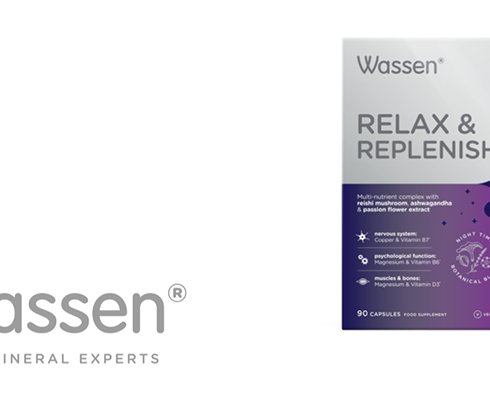Benefits, Research, Legality: What Is THCA, Anyway?
You can be forgiven for some confusion with the current state of cannabis. Decades of prohibition are giving way to a legal market with hemp-derived products. As a result, red tape is lifting, research is flourishing, and hundreds of cannabinoids are now making their way to store shelves. Yes, hundreds.
Cannabis is decentralized and becoming much more than THC and CBD. Specific compounds are now being used for specific treatments, giving rise to entirely new product offerings. Case in point: THCA. This cannabinoid is garnering considerable attention for its similarity to THC – the compound responsible for getting people “high” – but with one big difference: it’s legal. Additionally, THCA shows early promise against things like inflammation, nausea, and seizures.
This is a potential cannabis turning point and warrants a deeper dive into what we know about the compound, how it’s regulated, and potential wellness benefits. Let’s explore.
Understanding THCA
So, what do we know about THCA? Understanding the compound begins with understanding its relationship to THC. As the acidic precursor to THC, THCA presents a fascinating duality in its applications – both psychoactive and non-psychoactive depending on form and use. In its natural, unaltered state, THCA won’t produce the characteristic “high” associated with cannabis, yet early medical research suggests it may offer distinct therapeutic potential across a range of applications. More on that below.
On the other hand, however, the compound’s versatility emerges through a process called decarboxylation. When exposed to heat through vaping or smoking, THCA undergoes a fundamental transformation, shedding its acidic component to become delta-9 THC. This dual nature creates an intriguing paradox – THCA exists as a legal substance that carries the potential for powerful psychoactive effects when activated.
The method of consumption determines the experience. Using raw THCA in smoothies or tinctures preserves its non-psychoactive properties. However, applying heat through smoking, vaping, or cooking triggers the conversion to THC, producing the familiar psychoactive effects. This distinction makes THCA a uniquely versatile compound in the expanding cannabis wellness landscape.
Early research shows promise
It’s early days but, even beyond its unique psychedelic status, THCA shows remarkable therapeutic applications. The compound’s neuroprotective properties are of particular interest with studies suggesting THCA may shield brain cells from damage. If confirmed, this would open new possibilities for treating neurodegenerative conditions like Alzheimer’s.
The compound’s anti-inflammatory properties are also catching the attention of researchers with preliminary studies pointing to potential benefits for chronic conditions such as arthritis and autoimmune disorders. Beyond this, THCA has demonstrated promise in managing nausea, particularly among chemotherapy patients, while also showing signs of immune-boosting capabilities.
However, it’s important to remember we’re still in the early stages of understanding this compound. As legal barriers fall and scientific interest grows, THCA’s therapeutic profile will only expand. These initial findings, while promising, mark just the beginning of what could become a significant breakthrough in natural medicine. Watch this space.
Navigating the legal landscape
But, you might be asking yourself, how is it legal? The answer goes back to 2018. The Farm Bill ruled hemp-derived cannabinoids like THCA legal under federal law if they’re derived from hemp and contain no more than 0.3% delta-9 THC by dry weight. Hemp cultivation and the production of hemp-derived products are allowed as long as they don’t exceed 0.3% delta-9 THC. As a result, THCA products like oils, tinctures, or flowers that are properly labeled and fall within federal THC limits are legal.
This is a moving landscape, however, and changes could be on the way. The Farm Bill is due for renewal in the new year and some see the legality of this compound as a loophole. There are signs lawmakers want to move to potentially close it.
For example, in just the last few weeks, the Senate Democratic version of Farm Bill 2024 gave us a glimpse of what might be coming – a total THC standard of 0.3%. This goes beyond the current ruling that solely pertains to delta-9 THC and would make delta-8 THC or THCA products illegal if they exceed that total THC threshold. While CBD and delta-8 products under 0.3% total THC would stay legal, it’s hardly reassuring for business owners or consumers in this emerging industry.
I agree with the US Hemp Roundtable – we need solid regulations rather than product bans. While this is likely just policy posturing during a lame-duck period, we need to see more constructive dialogue between the hemp industry and policymakers in the new year to evolve in this direction. Let’s hope there’s more interest in regulating and enforcing production standards versus outright restrictions in the coming chapter of cannabis and cannabinoid legislation.
Going forward, THCA represents another fascinating chapter in the evolution of cannabis. As research expands and regulations develop, this compound’s dual nature – both therapeutic and psychoactive – positions it uniquely in the wellness landscape. While challenges lie ahead, particularly around regulation, THCA’s emergence signals cannabis’ continuing transformation from prohibited substance to mainstream wellness tool.
This article is by Scott Mazza, Co-Founder of Vitality CBD and Certified Headies














